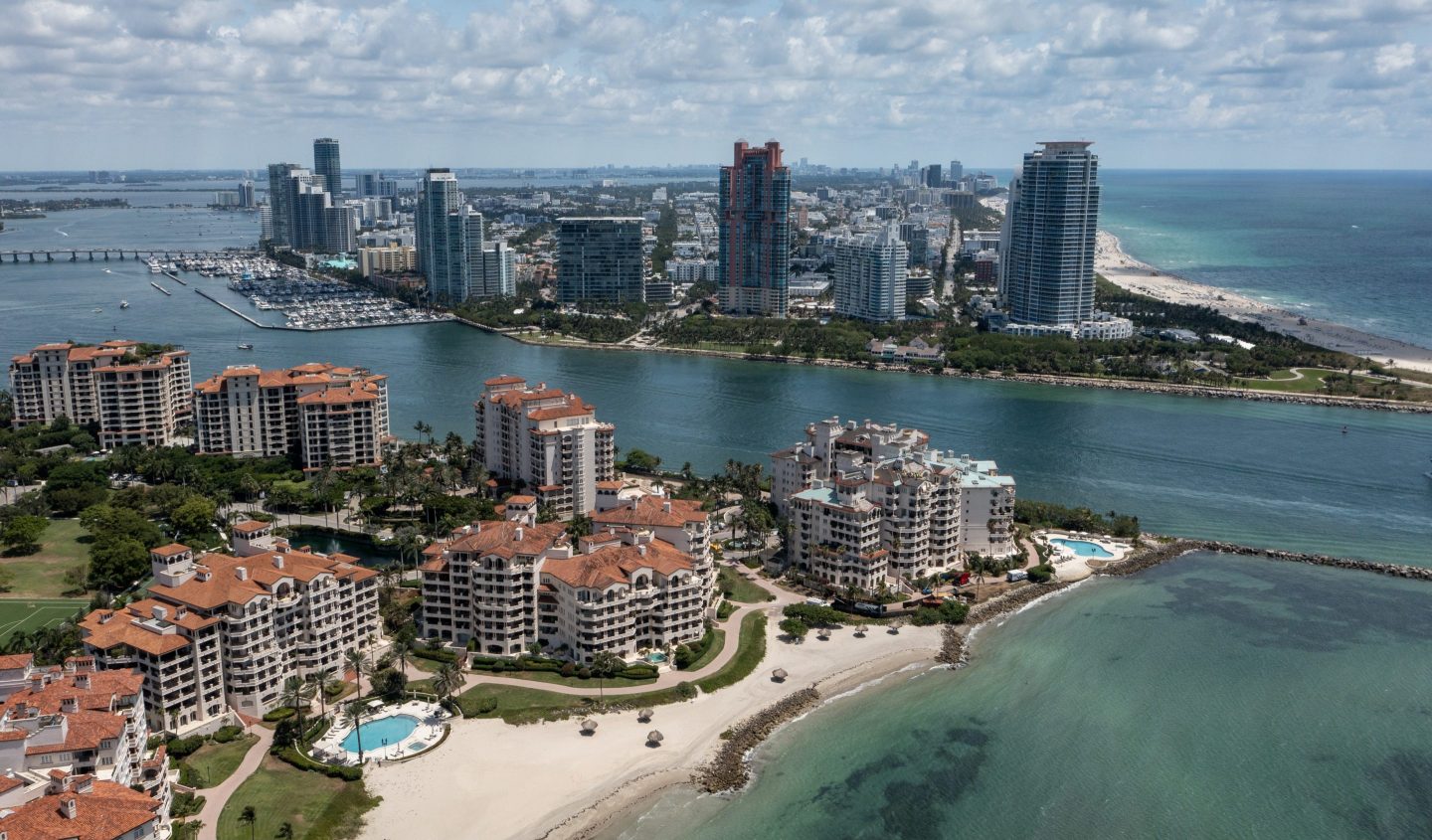For the second year in a row, the risk of housing bubbles in cities across the world has decreased on average, according to a UBS analysis, and home prices in many cities have mostly bottomed out. But that doesn’t mean potential peril has simply evaporated, for one city especially. “Miami now shows the highest bubble risk among the cities in this study,” UBS said.
“High bubble risk can also be seen in Tokyo and, despite a significant decline in the score compared to last year, in Zurich,” the financial services company continued. “An elevated risk of a housing bubble is evident in Los Angeles, Toronto, and Geneva.”
So we know home prices soared during the pandemic; people could work from anywhere and mortgage rates were wildly low, so they bought homes. Home prices are still high and continue to rise nationally, albeit at a slower pace. However, inflation-adjusted housing prices in the cities covered in the study are about 15% lower than in the middle of 2022, when the Federal Reserve and other central banks really started raising interest rates, according to the study. So if you look closer, you’ll see home prices are below their pandemic peaks in places such as Frankfurt, Munich, Stockholm, Hong Kong, and Paris, by 20% or more; in Vancouver, Toronto, and Amsterdam, prices have declined about 10%, per UBS. But “in the sought-after locations of Dubai and Miami, housing prices surged further,” the report read.
But let’s focus on America, which as UBS noted, is suffering from an affordability crisis that’s seen monthly mortgage payments as a percentage of household income far more than what was seen at the peak of the housing bubble in the early 2000s. But price corrections this time around are scant. “New York’s housing prices have not corrected sharply,” UBS said, citing that they’re only down 4% from pre-pandemic levels and have even increased in the last year. Boston has seen home prices leap 20% since 2019, and it has outpaced the city’s rental market and income growth.
Then there’s Miami. “Fueled by a booming luxury market, prices in Miami have risen by almost 50% in real terms since the end of 2019, 7% of which was in the last four quarters,” UBS said. To compare, Los Angeles, despite being an incredibly expensive city, has barely seen its housing prices rise since the middle of last year.
Any rating greater than 1.5 translates to a high bubble risk, according to UBS, and it’s given Miami a 1.79 score, putting it on top. At the end of 2019, Miami’s average home value was about $346,000. Today, it’s about $580,000. The city’s home prices haven’t fallen.
Early last year, I posed the question: “Is the home price correction simply delayed in Miami? Or is Miami set to miss it entirely?” At the time, those in the city’s real estate industry explained that American people looking for cheaper homes, companies looking for a change, and foreign buyers looking to pay for homes in all-cash, flocked to the city during the pandemic, which is why home prices rose so rapidly and substantially. The question was if that’d continue with the pandemic mostly in the rearview. So far, a correction hasn’t happened, but that doesn’t mean it won’t. We’re seeing some tension already with condominiums, which could be a telltale sign or an isolated issue.
Interestingly enough, Miami is coming out as a clear winner in the office space slump, as Capital Economics previously noted. Two very different real estate sectors, separated by commercial and residential, but to be sort of polar opposites is still quite a thing.












